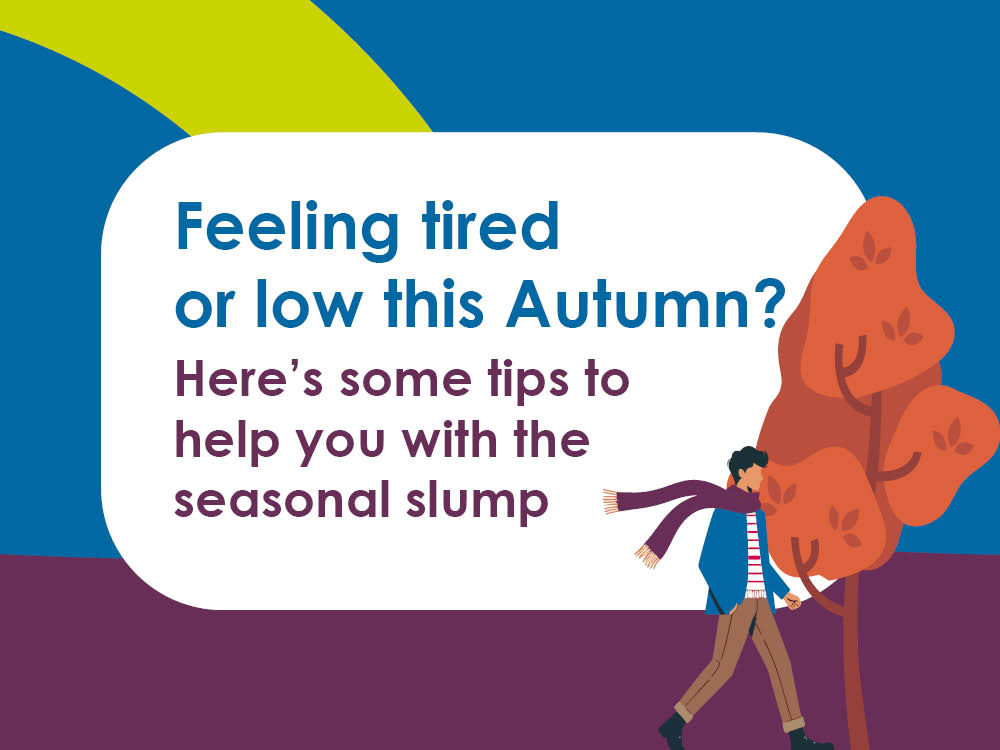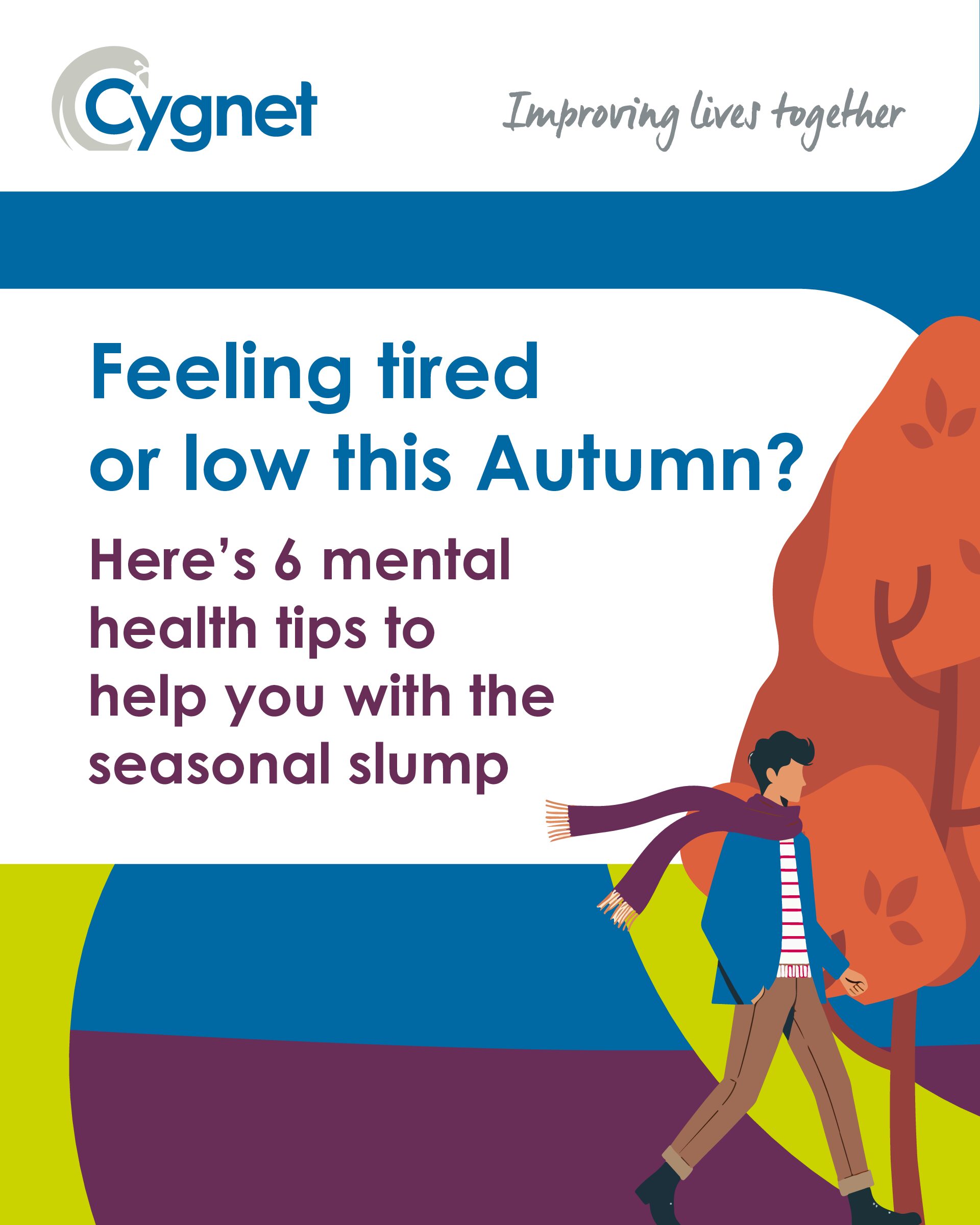
As the days grow shorter and the weather turns colder, many people in the UK experience a dip in energy and mood. This seasonal shift can lead to autumnal fatigue or even Seasonal Affective Disorder (SAD) – a recognised type of depression linked to reduced daylight exposure.
What is Autumnal Fatigue?
Autumnal fatigue is a common response to reduced daylight, colder temperatures, and changes in routine. These factors can affect your body’s natural rhythms, leading to tiredness, low mood, and difficulty concentrating.
Why do we feel more tired in Autumn?
- Less daylight disrupts your body clock, making it harder to stay alert
- Serotonin levels drop, leading to lower mood and energy
- Melatonin increases earlier, causing drowsiness sooner in the day
- Vitamin D levels fall, which can contribute to fatigue and low mood
Dr Erica De Lange, Regional Director of Psychology Services at Cygnet Health Care, explains:
“It’s very common to feel a noticeable dip in energy levels during autumn. One of the biggest factors is reduced exposure to natural daylight, which disrupts our circadian rhythm and affects mood-regulating chemicals like serotonin and melatonin.”
Signs to look out for:
- Feeling sluggish or low
- Sleeping more but still feeling tired
- Craving carbs or comfort foods
- Withdrawing from social activities
- Difficulty concentrating
If these symptoms persist, it may be time to take action.
6 tips to support your mental health this Autumn
1. Maximise daylight
Try to get outdoors every day, especially in the morning. Natural light helps regulate your circadian rhythm and can lift mood and energy.
2. Stay active
Physical activity improves circulation, releases endorphins, and counteracts sluggishness. Even gentle movement like walking or yoga can be highly effective.
3. Eat well and hydrate
Choose seasonal fruits, vegetables, wholegrains, and lean proteins like chicken, eggs, fish and chickpeas. Seasonal produce like squash, apples, and leafy greens are packed with nutrients that support wellbeing.
4. Keep hydrated
Even mild dehydration can cause tiredness. Drink water regularly- even in colder weather.
5. Prioritise sleep
Go to bed and wake up at the same time each day. Avoid screens before bed and create a calming routine to help your body wind down.
6. Be mindful of stimulants
Limit high-sugar foods and caffeine. They may give short bursts of energy but often lead to sharp crashes later.
Support your mental wellbeing
Dr De Lange also recommends psychological strategies to help manage autumn fatigue:
- Reframe your mindset: Instead of focusing on the loss of summer, embrace the positives of autumn – cosy routines, seasonal foods, and time for reflection.
- Practice mindfulness: Deep breathing, meditation, or mindful walks can restore calm and clarity.
- Be kind to yourself: Tiredness is a normal response to seasonal change. Self-compassion helps reduce guilt and encourages constructive solutions.
- Set small, achievable goals: Breaking tasks into manageable steps builds momentum and boosts energy.
- Stay connected: Social contact lifts mood and motivation. Schedule time with friends or loved ones to combat isolation.
When to seek help
If your symptoms last more than a few weeks or begin to affect your daily life, speak to a GP or mental health professional. Support is available, and you don’t have to go through it alone.
